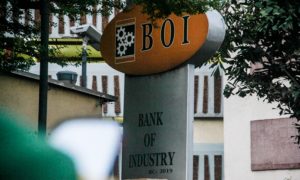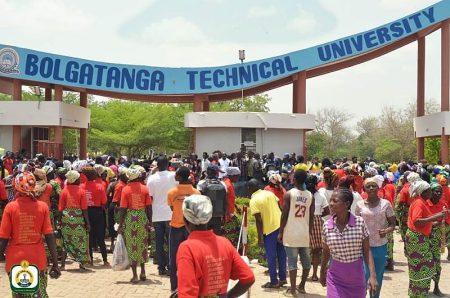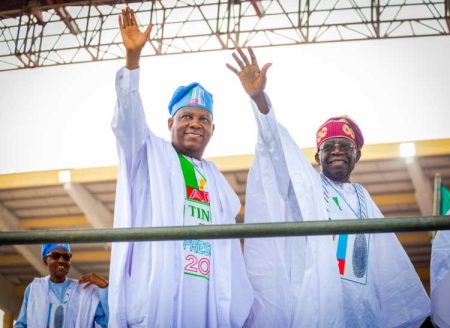Ghana’s newly implemented GH¢1 levy on fuel, a contentious topic that has ignited public debate and parliamentary dissent, has been staunchly defended by Energy and Green Transition Minister John Jinapor as a critical fiscal measure to avert a potential collapse of the nation’s energy sector and safeguard essential public services. Jinapor argues that the levy, while undoubtedly impacting consumers, is the less detrimental option compared to the dire consequences of diverting GH¢10 billion from the national budget to prop up the energy sector. Such a diversion, he warns, would cripple crucial social programs like the Ghana Education Trust Fund (GETFund), a vital resource for education development. The Minister presented the fuel levy as a necessary intervention to address the unsustainable financial burdens plaguing the energy sector, offering it as a bitter pill to swallow for long-term economic stability.
The energy sector’s precarious financial situation, characterized by a staggering US$3.1 billion debt as of March 2025, paints a grim picture of the challenges faced by the nation. Jinapor highlighted the sector’s overreliance on expensive liquid fuels for power generation, a costly practice that consumes over US$1 billion annually and is not factored into existing electricity tariffs. This reliance, he explains, stems from a surge in peak electricity demand to 4,300 megawatts, coupled with delays in completing critical gas infrastructure projects. Even if the Electricity Company of Ghana (ECG) achieved 100% tariff collection, none of the revenue would be available to cover the exorbitant costs of these liquid fuels, underscoring the deep-seated structural issues within the sector. The Minister attributes some of these challenges to past policy missteps, citing the continued use of liquid fuels by power plants originally slated to transition to gas.
The decision to introduce the levy now, according to Jinapor, was strategically timed to coincide with a period of relatively low fuel prices. He contends that even with the additional GH¢1 levy, the net effect is a GH¢3 reduction per litre compared to prices at the start of the current administration’s term. This argument aims to soften the blow of the levy, portraying it as a relatively minor increase in the context of recent price reductions. However, this rationale fails to address the cumulative impact of rising living costs on Ghanaians, a concern vehemently voiced by the opposition. The Minority Caucus’s walkout during the bill’s passage in Parliament reflects the widespread disapproval of the levy, seen by many as an additional burden on an already strained populace.
The fuel levy, projected to generate GH¢5.7 billion annually, is intended to cover approximately 60% of Ghana’s liquid fuel expenditure for electricity generation. This revenue stream, according to Jinapor, will be instrumental in stabilizing the power sector and addressing its mounting debt. He pointed to a 70% increase in payments to Independent Power Producers (IPPs) as evidence of the government’s commitment to resolving the sector’s financial woes. Further efforts include ongoing negotiations to restructure the US$3.1 billion debt, a crucial step towards long-term sustainability. The Minister also pledged to enhance transparency and accountability in the energy sector, particularly within the ECG, by enforcing stricter value-for-money standards in procurement processes. This commitment comes in the wake of revelations about inefficiencies, such as the procurement of cables without corresponding transformers, highlighting the need for improved management practices.
Beyond the immediate impact of the fuel levy, the government is pursuing strategies to enhance domestic gas supply agreements with key partners like Jubilee and ENI, aiming to reduce reliance on costly imported liquid fuels. These agreements, expected to be finalized by the end of the year, are crucial for long-term energy security and affordability. The successful transition to increased domestic gas utilization will be key to mitigating the need for future levies and stabilizing electricity prices. The Minister’s emphasis on addressing both the immediate financial crisis and the underlying structural issues within the energy sector suggests a comprehensive approach to reform, albeit one that is facing significant public resistance.
The introduction of the GH¢1 fuel levy, defended by the government as a necessary measure to avert a larger economic crisis, has sparked considerable controversy and highlights the complex challenges confronting Ghana’s energy sector. While the levy is projected to generate significant revenue to address the sector’s immediate financial woes and support critical public services, it also underscores the ongoing struggle to balance fiscal responsibility with the needs of the citizenry. The government’s commitment to long-term reforms, including increased reliance on domestic gas and improved efficiency within the ECG, offers a glimmer of hope for a more sustainable energy future. However, the success of these initiatives, and the ultimate impact of the fuel levy, remains to be seen, as the nation grapples with the delicate balance between economic stability and social welfare.














